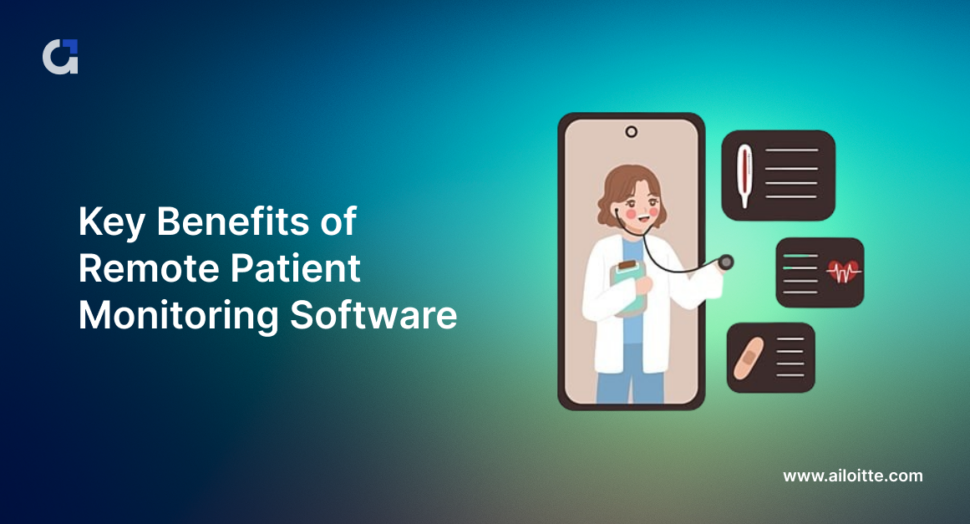Cutting-Edge RPM Software: Improve Patient Results with Innovation
Wiki Article
The Future of Health Care: Remote Person Keeping Track Of Simplified
As healthcare continues to evolve, one location that holds tremendous assurance is remote individual surveillance. With a focus on enhancing patient outcomes and simplifying medical care shipment, remote tracking is poised to revolutionize the sector.Benefits of Remote Client Monitoring
Remote patient surveillance provides a wide range of benefits for both healthcare providers and people alike. One considerable advantage is the capacity to continually keep an eye on clients' vital indicators and health and wellness data remotely. This real-time surveillance allows healthcare service providers to detect any type of concerning adjustments or patterns promptly, bring about early treatments and potentially protecting against medical emergency situations. Furthermore, remote person tracking boosts the general top quality of care by giving a more thorough and holistic sight of patients' health and wellness standing beyond typical in-person gos to.Additionally, remote person monitoring can bring about enhanced individual end results and fulfillment. Individuals can appreciate the ease of receiving care in the comfort of their own homes while still knowing that their health and wellness is being very closely kept track of. This can result in enhanced patient engagement and adherence to therapy strategies, ultimately causing far better health results. Furthermore, remote surveillance can lower the requirement for constant hospital brows through, decreasing medical care expenses for both companies and clients. On the whole, the advantages of remote individual monitoring are clear, making it a beneficial tool in modern-day health care distribution.
Technology Driving Remote Surveillance
In the realm of modern-day healthcare, technical developments play a crucial function in driving the advancement and efficiency of remote person tracking. The assimilation of ingenious modern technologies such as wearable gadgets, mobile applications, and cloud-based systems has reinvented the means doctor remotely keep an eye on and manage patient health and wellness - software for remote patient monitoring. These modern technologies make it possible for continuous real-time tracking of essential signs, medication adherence, and other critical health data, enabling prompt treatments and personalized care plansOne secret innovation driving remote surveillance is the Net of Points (IoT), which enables seamless connectivity between medical gadgets and medical care systems. IoT tools such as smartwatches and cordless sensing units collect and transmit individual information to central systems, facilitating remote tracking from anywhere in the globe. Expert system (AI) and artificial intelligence algorithms further improve remote monitoring by analyzing substantial amounts of client information to spot patterns, anticipate wellness fads, and sharp health care suppliers to possible issues.
Effect on Medical Care Shipment
With the assimilation of sophisticated technologies driving remote client surveillance, the influence on healthcare delivery is ending up being transformative and progressively profound. Remote patient tracking allows health care providers to offer even more positive and personalized like individuals, causing enhanced wellness outcomes and minimized health center admissions. By remotely tracking essential indications, signs, and medication adherence, health care specialists can interfere early, preventing difficulties and boosting the general high quality of care.Moreover, remote surveillance boosts accessibility to medical care solutions, particularly for individuals in country or underserved locations. Clients can obtain constant surveillance and support from their homes, eliminating the need for constant in-person sees. This not only saves time and minimizes costs for both people and medical care centers but additionally minimizes the risk of direct exposure to contagious illness, a crucial consideration in the present health care landscape.
Additionally, remote client monitoring makes it possible for health care providers to far better focus on and allot resources care based on real-time information. By determining risky clients and interfering quickly, medical care delivery becomes a lot more reliable and reliable, eventually causing an extra lasting and patient-centered healthcare system.
Improving Person End Results

Additionally, RPM enables proactive monitoring of chronic conditions, decreasing the likelihood of intense exacerbations and health center readmissions. Patients benefit from raised comfort and convenience, as they can receive care in their own homes while remaining connected to their doctor. This continuous surveillance not just boosts individual contentment yet additionally promotes a sense of empowerment and engagement in their own wellness monitoring.
Future Trends in Remote Monitoring
Accepting advanced technologies in remote client monitoring is forming the future landscape of medical care distribution. One substantial trend is the enhanced usage of wearable devices and sensing units to gather real-time information, making it possible for healthcare service providers to keep an eye on patients constantly without the need for frequent in-person sees.
Furthermore, telehealth systems are becoming extra innovative, permitting online assessments, remote medical diagnosis, and remote patient keeping an eye on done in one incorporated system (best remote patient monitoring software). This alternative approach to remote tracking is streamlining healthcare distribution, enhancing person satisfaction, and eventually, enhancing general top quality of treatment
Final Thought
In final thought, remote person tracking provides countless advantages in healthcare distribution, driven by advancements in technology. It has the possible to enhance patient end results and change the way health care is delivered. Future patterns in remote monitoring will remain to form the landscape of health care, providing possibilities for more efficient and tailored person treatment.Remote individual monitoring provides a plethora of benefits for both healthcare companies and people alike. Additionally, remote client rpm software monitoring boosts the overall quality of treatment by offering a more detailed and holistic sight of clients' wellness standing past standard in-person gos to.
Furthermore, remote individual monitoring can lead to better person end results and satisfaction. Remote client surveillance allows health care companies to supply more positive and tailored care to people, leading to enhanced wellness outcomes and decreased health center admissions. Remote individual monitoring (RPM) plays a substantial role in enhancing individual end results by providing constant, real-time information that enables healthcare suppliers to interfere quickly and change therapy plans as needed.
Report this wiki page